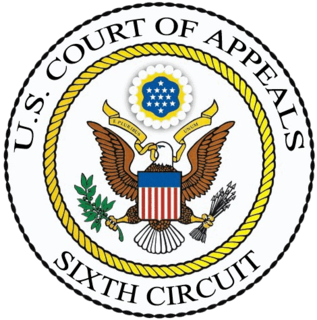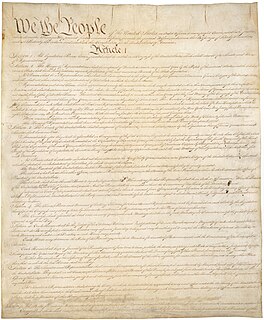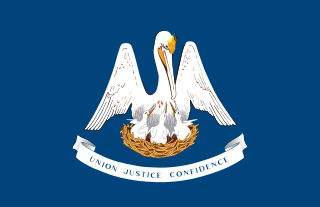
In law, common law is that body of law derived from judicial decisions of courts and similar tribunals. The defining characteristic of “common law” is that it arises as precedent. In cases where the parties disagree on what the law is, a common law court looks to past precedential decisions of relevant courts, and synthesizes the principles of those past cases as applicable to the current facts. If a similar dispute has been resolved in the past, the court is usually bound to follow the reasoning used in the prior decision. If, however, the court finds that the current dispute is fundamentally distinct from all previous cases, and legislative statutes are either silent or ambiguous on the question, judges have the authority and duty to resolve the issue. The court states an opinion that gives reasons for the decision, and those reasons agglomerate with past decisions as precedent to bind future judges and litigants. Common law, as the body of law made by judges, stands in contrast to and on equal footing with statutes which are adopted through the legislative process, and regulations which are promulgated by the executive branch. Stare decisis, the principle that cases should be decided according to consistent principled rules so that similar facts will yield similar results, lies at the heart of all common law systems.

An injunction is a legal and equitable remedy in the form of a special court order that compels a party to do or refrain from specific acts. "When a court employs the extraordinary remedy of injunction, it directs the conduct of a party, and does so with the backing of its full coercive powers." A party that fails to comply with an injunction faces criminal or civil penalties, including possible monetary sanctions and even imprisonment. They can also be charged with contempt of court. Counterinjunctions are injunctions that stop or reverse the enforcement of another injunction.
Certiorari is a court process to seek judicial review of a decision of a lower court or administrative agency. The term comes from the name of an English prerogative writ, issued by a superior court to direct that the record of the lower court be sent to the superior court for review.
The law of the case is a legal term of art that is applicable mainly in common law, or Anglo-American, jurisdictions that recognize the related doctrine of stare decisis. The phrase refers to instances where "rulings made by a trial court and not challenged on appeal become the law of the case." "Unless the trial court's rulings were clearly in error or there has been an important change in circumstances, the court's prior rulings must stand." Usually the situation occurs when either a case is on appeal for the second time—e.g. if the reviewing court remanded the matter to the trial court and the party appeals again or if the case was appealed in a higher appellate court—for example, from an appellate court to the highest court.
Ayotte v. Planned Parenthood of Northern New England, 546 U.S. 320 (2006), was a decision by the Supreme Court of the United States involving a facial challenge to New Hampshire's parental notification abortion law. The First Circuit had ruled that the law was unconstitutional and an injunction against its enforcement was proper. The Supreme Court vacated this judgment and remanded the case, but avoided a substantive ruling on the challenged law or a reconsideration of prior Supreme Court abortion precedent. Instead, the Court only addressed the issue of remedy, holding that invalidating a statute in its entirety "is not always necessary or justified, for lower courts may be able to render narrower declaratory and injunctive relief."
The Uniform Trade Secrets Act (UTSA), published by the Uniform Law Commission (ULC) in 1979 and amended in 1985, is a Uniform Act promulgated for adoption by states in the United States. One goal of the UTSA is to make the state laws governing trade secrets uniform, which is especially important for companies that operate in more than one state. Historically, the law governing misappropriation of trade secrets developed separately in each state.
Knock-and-announce, in United States law criminal procedure, is an ancient common law principle, incorporated into the Fourth Amendment, which requires law enforcement officers to announce their presence and provide residents with an opportunity to open the door prior to a search.

Muth v. Frank, 412 F.3d 808, was a case in which the United States Court of Appeals for the Seventh Circuit ruled that the denial to an individual of a writ of habeas corpus for violation of Wisconsin's laws criminalizing incest was not unconstitutional. The petitioners relied heavily on the Supreme Court's ruling in Lawrence v. Texas invalidating anti-sodomy laws two years prior, which the Seventh Circuit rejected.

Daniel v. Waters, 515 F.2d 485 was a 1975 legal case in which the United States Court of Appeals for the Sixth Circuit struck down Tennessee's law regarding the teaching of "equal time" of evolution and creationism in public school science classes because it violated the Establishment clause of the US Constitution.
Non-publication of legal opinions is the practice of a court issuing unpublished opinions. An unpublished opinion is a decision of a court that is not available for citation as precedent because the court deems the case to have insufficient precedential value.
Fortunato Pedro "Pete" Benavides is a Senior United States Circuit Judge of the United States Court of Appeals for the Fifth Circuit. His chambers are in Austin, Texas.
Feres v. United States, 340 U.S. 135 (1950), combined three pending federal cases for a hearing in certiorari in which the Supreme Court of the United States held that the United States is not liable under the Federal Tort Claims Act for injuries to members of the armed forces sustained while on active duty and not on furlough and resulting from the negligence of others in the armed forces. The opinion is an extension of the English common-law concept of sovereign immunity.

Robert Clive Jones is a Senior United States District Judge of the United States District Court for the District of Nevada. He served as the Chief United States District Judge from 2011 to 2014.
Privity is the legal term for a close, mutual, or successive relationship to the same right of property or the power to enforce a promise or warranty. It is an important concept in contract law.
Exceptional circumstances or exceptional situations are the conditions required to grant additional powers to a government agency, particularly a government leader or a judge, so as to alleviate, or mitigate, unforeseen or unconventional hardship. The term is commonly used in Australia, where it has been applied in various contexts, most recognizably in relation to special consideration policies for students and drought relief payments for farmers known as Exceptional Circumstances Relief Payments or ECRP. It is similarly used in the law of the United States, particularly in the Immigration and Nationality Act (INA).

The law of the United States comprises many levels of codified and uncodified forms of law, the supreme of which is the United States Constitution, the foundation of the federal government of the United States. The Constitution sets out the boundaries of federal law, which consists of Acts of Congress, treaties ratified by the Senate, regulations promulgated by the executive branch, and case law originating from the federal judiciary. The United States Code is the official compilation and codification of general and permanent federal statutory law.

Scenic Hudson Preservation Conference v. Federal Power Commission, 354 F.2d 608 is a United States Second Circuit Court of Appeals case in which a public group of citizens, the Scenic Hudson Preservation Conference, organized and initiated legal action after the Federal Power Commission approved plans for Consolidated Edison to construct a power plant on Storm King Mountain, New York. The Federal regulatory agency had denied that the environmental group could bring action, but the court disagreed, ruling that Scenic Hudson had legal standing because of their "special interest in aesthetic, conservational, and recreational aspects" of the mountain.
In order to insure that the Federal Power Commission will adequately protect the public interest in the aesthetic, conservational, and recreational aspects of power development, those who by their activities and conduct have exhibited a special interest in such areas must be held to be included in the class of 'aggrieved' parties under s. 313 (b). We hold that the Federal Power Act gives petitioners a legal right to protect their special interests.

In some jurisdictions, a petition for review is a formal request for an appellate tribunal to review and make changes to the judgment of a lower court or administrative body. If a jurisdiction utilizes petitions for review, then parties seeking appellate review of their case may submit a formal petition for review to an appropriate court. In the federal judiciary of the United States, the term "petition for review" is also used to describe petitions that seek review of federal agency orders or actions.
Ross v. Blake, 578 U.S. ___ (2016), was a United States Supreme Court case in which the Court held that "special circumstances" cannot excuse an inmate's failure to exhaust administrative remedies before filing a lawsuit under the Prison Litigation Reform Act of 1995, but clarified that inmates are required to exhaust only administrative remedies that are genuinely available. In so doing, it vacated and remanded the decision of the United States Court of Appeals for the Fourth Circuit.









